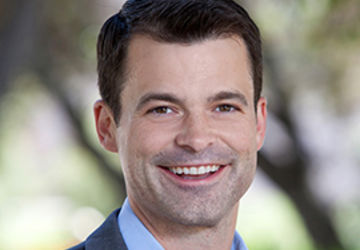Robb Willer
Professor of Sociology, Psychology (by courtesy), and Organizational Behavior in the Graduate School of Business (by courtesy); Director, Polarization and Social Change Lab; Co-Director, Center on Philanthropy and Civil Society
Ph.D., Cornell University, 2006
M.A., Cornell University, 2004
B.A., University of Iowa, 1999

Polarization and Social Change Lab Website
Robb Willer is a Professor in the Departments of Sociology, Psychology (by courtesy), and the Graduate School of Business (by courtesy) at Stanford University. He is the Director of the Polarization and Social Change Lab and the Co-Director of the Center on Philanthropy and Civil Society.
Professor Willer’s teaching and research focus on social forces that bring people together (e.g., morality, altruism), forces that divide them (e.g., fear, prejudice), and domains of social life that feature the complex interplay of the two (e.g., hierarchies, politics).
The primary area of his research looks at the social and psychological forces shaping Americans’ political attitudes. He has a particular interest in techniques for overcoming polarization to build political consensus. He studies how political psychology findings can be applied to construct persuasive political messages.
Much of his political research suggests that attitudes and ideology are, in part, products of individuals' efforts to manage the threats they face in everyday life. For example, he has found that masculinity threats can influence men's attitudes towards war and gay rights. In other research, he finds a link between white Americans' views of welfare programs and the Tea Party and their perception that white advantage in the U.S. is declining.
The other main area of his research looks at how altruism, morality, and reputation systems promote cooperation and generosity. In this research he finds that many aspects of social life that are often seen as antisocial or malicious - such as gossip, moral judgments, and status hierarchies - are fundamental to social order. He also studies the dynamics of status and prestige, with a focus on the social psychological forces that stabilize hierarchies of rank. Recently, he has studied the role that emotions play in the moral judgments people form about one another, and how those judgments in turn can promote cooperation and solidarity in groups.
In his work he employs whatever research method offers the most leverage on a given research question. As a result, he has used a variety of methods, including laboratory and field experiments, surveys, archival research, social network analysis, physiological measurement, agent-based modeling, and direct observation of behavior.
His research has appeared primarily in general science, sociology, psychology, and organizations journals, including the Proceedings of the National Academy of Sciences, Nature Human Behaviour, American Sociological Review, American Journal of Sociology, Annual Review of Sociology, Journal of Personality and Social Psychology, Psychological Science, Administrative Science Quarterly, and Proceedings of the Royal Society of London: Biological Sciences.
His research has also received widespread media coverage including from the New York Times, the Wall Street Journal, USA Today, the Washington Post, Science, Nature, Time, U.S. News and World Report, Scientific American, Harper’s, Slate, CNN, NBC Nightly News, The Today Show, and National Public Radio.
Willer was the 2009 recipient of the Golden Apple Teaching award, the only teaching award given by UC-Berkeley's student body.
Latest Publications
Journal Articles & Book Chapters
Related News
Contact
Telephone
650-736-6509
Email
willer [at] stanford.edu
Office
Bldg. 120, Rm. 226/228
CV Link
Office Hours
Office Hours
By appointment

